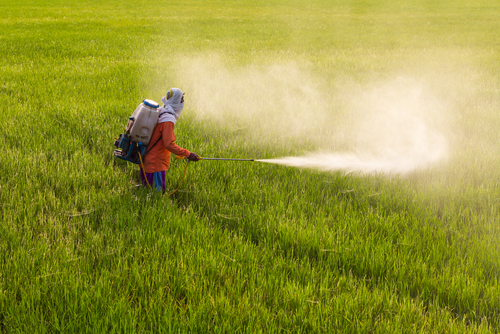But what is unsustainable agriculture?
Unsustainability means the inability of something to flourish, thrive or continue with glory. In an agricultural sense, unsustainable agriculture is the adoption of practices that will eventually lead to degradation in the quality of soil, land, and other natural resources that are needed for farming and a healthy future.
If you keep farming on a soil, without thinking about what would happen once the soil goes barren, you’re in for trouble. With an ever-increasing world population, it’s a mistake we cannot afford. Non-sustainable farming can lead to land degradation and worse, problems with food security.

Factors that contribute to unsustainable agriculture
- Technological mess:
The technological revolution in agriculture has brought significant changes to farming and allied activities. Farmers in developing countries have seen their lives turn around for good. But modern technological practices have also caused damage to natural biodiversity, crop quality, alteration in soil and land health and pollution.
- Use of fertilizers, pesticides and insecticides:
Although fertilizers are needed to keep pests, insects and other troublemakers away, chemical origin pesticides and fertilizers have done more harm than good. Namely, water pollution, degradation of breathing air, cases of pesticide poisoning in animals and humans both (Furan poisoning), and contamination of crops.
- Unfavorable farming techniques that directly impact the ecosystem:
Agricultural and other man-made practices like; tilling of the soil, mono-cropping or monoculture, deforestation, growing GMO crops, and corporate agribusiness.
Impacts of unsustainable agriculture

- Degradation of land, soil and nutrients:
The aggressive poaching of agricultural lands, adoption of unfavorable practices, and use of chemicals have led to soil erosion, loss of nutrients in the soil, unequal distribution of resourceful minerals and challenging conditions for crop growth.
- Food insecurity and poverty:
The above factors cause unfavorable conditions for crop growth, which directly contributes to poverty and unavailability of healthy food. The presence of crops contaminated with chemicals and GMOs is not helping eradicate food insecurity.
- Human health:
What do you get when most of the food around you is coming out of pesticide fueled and GMO altered farms? That's right, a big question mark about your health, and deficiency of essential nutrients, minerals and proteins. Human health is probably the biggest victim of unsustainable agriculture practices.
How to tackle unsustainable agriculture practices?
- Adopting sustainable agriculture.
- Demanding responsible and actionable laws from the authorized government institutions.
- Reduction of pesticides and other chemical usages from farming practices.
- Avoiding and condemning human-made events that impact farming.
Conclusion
Education is essential; for someone who understands the impact of unsustainable agriculture on the ecosystem, human & animal health, economy, and future generations, our role as responsible citizens of the USA should be bringing awareness towards sustainable agricultural practices.